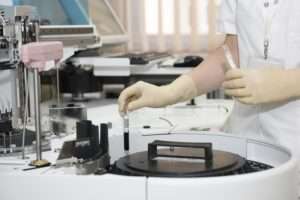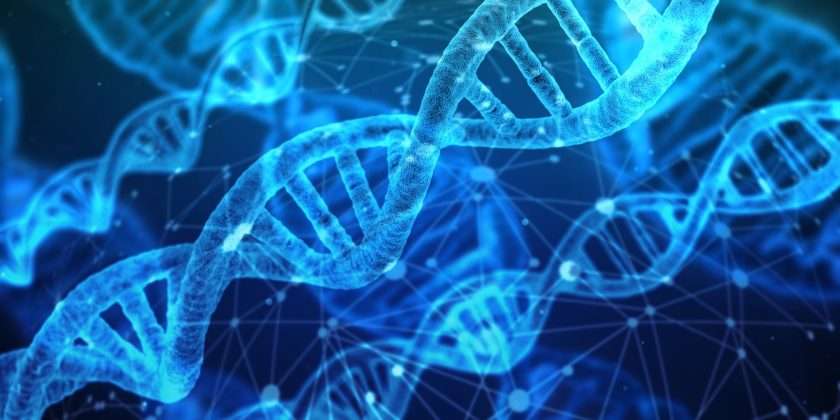Precision medicine1 is “an emerging approach for disease treatment and prevention that takes into account individual variability in genes, environment, and lifestyle for each person.” This approach will allow doctors and researchers to predict more accurately which treatment and prevention strategies for a particular disease will work in which groups of people. Jay Harold wrote this post, “Pharmacogenetic Testing: Definition & 3 Benefits,” that gives you some good information to deal with this rapidly developing area of medicine.
What is a gene2?
A gene is the basic physical and functional unit of heredity. Genes are made up of DNA. Some genes act as instructions to make molecules called proteins. However, many genes do not code for proteins. In humans, genes vary in size from a few hundred DNA bases to more than 2 million bases. The Human Genome Project estimated that humans have between 20,000 and 25,000 genes.
Every person has two copies of each gene, one inherited from each parent. Most genes are the same in all people, but a small number of genes (less than 1 percent of the total) are slightly different between people. Alleles are forms of the same gene with small differences in their sequence of DNA bases. These small differences contribute to each person’s unique physical features.
Scientists keep track of genes by giving them unique names. Because gene names can be long, genes are also assigned symbols, which are short combinations of letters (and sometimes numbers) that represent an abbreviated version of the gene name. For example, a gene on chromosome 7 that has been associated with cystic fibrosis is called the cystic fibrosis transmembrane conductance regulator; its symbol is CFTR.
What is pharmacogenetic testing3?
Pharmacogenetics, also called pharmacogenomics, is the study of how genes affect the body’s response to certain medicines4. Genes are parts of DNA passed down from your mother and father. They carry information that determines your unique traits, such as height and eye color. Your genes can also affect how safe and effective a particular drug could be for you.

Genes can be the reason the same medicine at the same dose will affect people in very different ways. Genes may also be the reason some people have bad side effects5 to a medicine, while others have none.
Pharmacogenetic testing looks at specific genes to help figure out the types of medicines and dosages that may be right for you.
Other names: pharmacogenomics, pharmacogenomic testing
What is it used for?
Pharmacogenetic testing may be used to:
- Find out whether a certain medicine could be effective for you
- Find out what the best dosage might be for you
- Predict whether you will have a serious side effect from a medicine
Why do I need pharmacogenetic testing?
Your health care provider may order these tests before you start a certain medicine, or if you are taking a medicine that is not working and/or causing bad side effects.
Pharmacogenetic tests are only available for a limited number of medicines. Below are some of the medicines and genes that can be tested. (Gene names are usually given in letters and numbers.)
| Medicine | Genes |
|---|---|
| Warfarin: a blood thinner | CYP2C9 and VKORC1 |
| Plavix, a blood thinner | CYP2C19 |
| Antidepressants, epilepsy medicines | CYP2D6, CYPD6 CYP2C9, CYP1A2, SLC6A4, HTR2A/C |
| Tamoxifen, a treatment for breast cancer | CYPD6 |
| Antipsychotics | DRD3, CYP2D6, CYP2C19, CYP1A2 |
| Treatments for attention deficit disorder | D4D4 |
| Carbamazepine, a treatment for epilepsy | HLA-B*1502 |
| Abacavir, a treatment for HIV | HLA-B*5701 |
| Opioids | OPRM1 |
| Statins, medicines that treat high cholesterol | SLCO1B1 |
| Treatments for childhood leukemia and certain autoimmune disorders | TMPT |
What happens during a pharmacogenetic test?
Testing is usually done on blood or saliva.
For a blood test, a health care professional will take a blood sample from a vein in your arm, using a small needle. After the needle is inserted, a small amount of blood will be collected into a test tube or vial. You may feel a little sting when the needle goes in or out. This usually takes less than five minutes.
For a saliva test, ask your health care provider for instructions on how to provide your sample.

Will I need to do anything to prepare for the test?
You usually don’t need any special preparations for a blood test. If you are getting a saliva test, you should not eat, drink, or smoke for 30 minutes before the test.
Are there any risks to the test?
There is very little risk to having a blood test. You may have slight pain or bruise at the spot where the needle was put in, but most symptoms go away quickly.
There is no risk to having a saliva test.
What do the results mean?
If you were tested before starting a treatment, the test could show whether a medicine will likely be effective and/or if you are at risk for serious side effects. Some tests, such as the ones for certain drugs that treat epilepsy and HIV, can show whether you are at risk for life-threatening side effects. If so, your provider will try to find an alternate treatment.
Tests that happen before and while you’re on treatment can help your health care provider figure out the right dose.

If you have questions about your results, talk to your health care provider.
Is there anything else I need to know about pharmacogenetic testing?
Pharmacogenetic testing is only used to find out a person’s response to a specific medicine. It is not the same thing as genetic testing. Most genetic tests are used to help diagnose diseases or potential risk of disease, identify a family relationship, or identify someone in a criminal investigation.
Future Reseach: All of Us6 research program
- All of Us: The All of Us research program, led by the National Institutes of Health, plans to enroll one million or more US participants, who will be followed for several years. All of Us participants will submit information about their medical history and lifestyle. Participants also may have certain physical measurements taken (for example, height, weight, and blood pressure) and provide urine or blood samples. All of Us will use this information to look at how genetic, behavioral, and environmental factors can affect health, including the likelihood of getting certain diseases and effectiveness of prevention and treatments. Learn more about how you can be a part of the All of Us program.
The medical information provided is for informational purposes only and is not to be used as a substitute for professional medical advice, diagnosis or treatment. Please contact your health care provider with questions you may have regarding medical conditions or the interpretation of test results. In the event of a medical emergency, call 911 immediately.
Jay Harold provides relevant and practical knowledge for your life, your health, and your wealth. This post is part of that effort to make you a more knowledgeable healthcare person. Please Share it and read more about Jay Harold here. Please take this advice from Muhammad Ali and give back to others. “Service to others is the rent you pay for your room here on earth.
Bibliography
- https://ghr.nlm.nih.gov/primer/precisionmedicine/definition
- https://ghr.nlm.nih.gov/primer/basics/gene
- https://medlineplus.gov/lab-tests/pharmacogenetic-tests/
- https://medlineplus.gov/medicines.html
- https://medlineplus.gov/drugreactions.html
- https://www.cdc.gov/features/precision-medicine/index.html




